A Gap in the Canopy
There is a gap in the canopy where the oak tree once stood.
The sun floods instead of filters, a spotlight on the devastation.
The board we nailed across the double trunks still remains, only now it has been knocked askew. This was the makeshift ladder that lifted teenagers in need of an adrenaline kick to a leap off the tree, clinging to a precarious rope swinging them high above the sloped creek bank.
The tree stood rooted in that place for over 100 years, maybe 200 years. It has provided food and shelter for hundreds of thousands of organisms. Plenty of storms have passed through and it has stood strong. It is an oak after all.
In September of 2024, however, Hurricane Helene passed over the backwoods. The storm brought devastation all around us, creating sweeping gaps in the canopies of forests across NC and SC.
Here, I watched the poplars bend and twist, I watched the snaggled pines lean. It was a surprise when this oak fell with a thunderous crash. I caught the fall from my front porch in a video I was taking of the wind raging through the treetops. My heart sank. This was personal. This was my gap in my backwoods. This tree was a part of the land and its story, and a part of my family and our story.
Something about this storm was the tipping point for many oaks. Hemlock skeletons, long dead, stood. Leaning pines stood. Everyone found themselves questioning what could bring an oak down. Was it the saturated roots in combination with the fierce winds caught in a sail of leaves still on the tree? Was it a fungus in the soil that had weakened its roots? Whatever it was, we all felt a loss of security. If a hurricane could come raging into the mountains and take the sentinel oaks down, if mountains could come sliding down, if waters could rise high enough to wipe out towns, where was safety to be found?
After some time had passed and winter had begun to set in, I went out to admire the giant that once was. The double trunks were so large they each held the canopy of a single oak.
The trunks were horizontal, but the massive root spread was now vertical. I climbed onto the trunk at the base, where the roots still held the soil, and balanced one foot in front of the other until I reached the canopy. I wanted to inspect the lichens that were once growing too high for me to see.
This day was the beginning of a new relationship with this tree.
The canopy was tangled with the many trees that intercepted it when it fell: Sourwoods, maples, and sweet gums are bent and twisted in the oak’s branches. A pair of shortleaf pines stand unwavering, having taken the brunt of the fall. I climbed in and out of branches. Up and through them. I had a natural jungle gym in my backwoods.
I started getting excited and inspired. I have always wanted a bird blind in my woods. Somewhere I could sit for hours and watch wildlife. This was going to do just fine. Most of the leaves were shaken off in the storm, but a few branches had dead leaves hanging like curtains.
I tried out different perches. I needed a comfortable seat, a little bit of cover, and a good view. I found multiple good seats and spent some winter days sitting in the tree, looking forward to spring and the birds’ return.
In January, an unexpected storm came into my life when my son Benn died. For several weeks I never even thought of the tree. One day I needed to get out of the house and out of my head so I sat in one of my familiar perches. I found space to breathe and space to just be, away from grief. I remembered how I had assigned spirit trees to each of my children. And how Benn’s spirit tree was an oak. I thought oaks exemplified strength, steadiness, and longevity. They were fearless and joyfully exuberant when they danced in the winds. And I saw all of that in Benn, too. There were times he was putting himself out there in the storms and I wondered if lightning wouldn’t strike. It never did. Instead, like the oaks in Helene, it was a wind that laid him down. Unknowing to us, his roots were saturated, a silent fungus had taken hold, and the storms of life came through at just the wrong moment. He could not stand any longer. He lay himself down. For us, it was a resonating crash. It didn’t make sense. Oaks are not supposed to fall like this. Our forest needed his presence. The gap in the canopy was unthinkable.
This spring, despite the tearing up of its foundation, the oak tree leafed out. It may be the last time it ever does. I imagine the buds had stored up what they needed last summer and the tree was still holding some nutrients. I am not sure the roots will be able to gather enough nutrients to allow this to happen again.
For now, the sudden loss of the oak tree has been softened by the new leaves. All of my perches are surrounded with green.
As a result, I have had a glorious bird blind. I have been visiting the tree for what I like to call ‘tree time’ meditation. I bring my hot tea and my beautiful quilted bag to hang on a branch with my journals. I sit on a perch praying, breathing, journaling, and just being. It is a sacred space. Surrounded by green, watching the forest carry on, I feel safe again
.
And in this place, where I give myself space, I have begun to experience the backwoods in new ways. I have had a Louisiana waterthrush fly right past my face, close enough to startle us both. I watched chubs build a nest in my creek, stone by stone. A jumping spider on the bark caught my eye just in time to see it stalk and devour an ant. Insects and birds are drawn to this place of abundance. The fallen tree has become a shelter me and is still a shelter for the wild.
Make no mistake, despite the silver lining, the tree was not just my loss, but our loss. Woodlandtrust.org says that as many as 2,300 species depend on oaks for survival. This was a loss to the birds who returned to breed and nest here every year, to the squirrels who depended on it for shelter and food, to the insects flying and crawling through its canopy and living in its leaf litter. New trees will fill this gap, but it will take hundreds of years for another oak to replace this one.
One of the comforts of nature is that nothing is wasted. Life arises from death. The gap in the canopy of my backwoods creates a space for new life to rise upward. And that new life will be supported by the nutrients of the decaying process of this giant oak. By the fungi and insects who will feast on it and by the animals who will shelter still in the bones of it. Nothing will ever replace that particular oak. It is now part of the story of my forest. However, now new things can fill in the gap and tell their story. They, too, will fall one day to make room for more life to grow. Each new story will rise up from the soil of old stories.
Benn was not just my loss, but our loss. So many people who found joy in his being or took shelter in his presence have deeply felt his absence. There will always be a gap in our family canopy, the one where Benn once stood. We are devastated by that loss. Like the oak leaves here this spring, memories of him are fresh. They are a shelter that softens the loss. I want to believe that like this oak, Benn’s memory will sift into the forest floor and rise up into our beings as nutrients from the mycelium, that it will rise on the wings of birds that feed here and then adventure on the South America in the winter, that it will fill the belly of the bear that is plodding through looking for food. I want to believe that out of death comes life. That nothing is wasted. That a gap in the canopy can become softer with time.


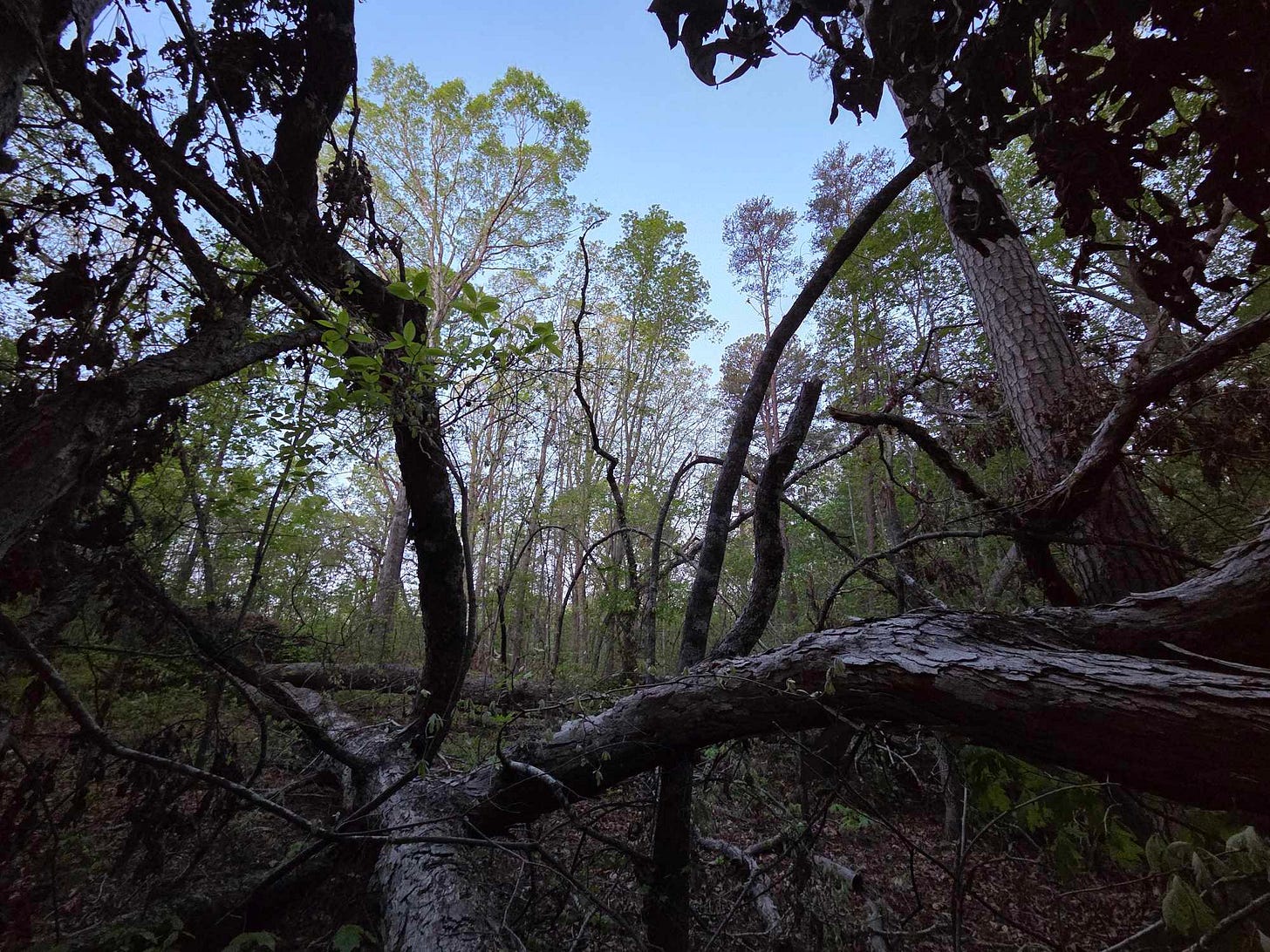
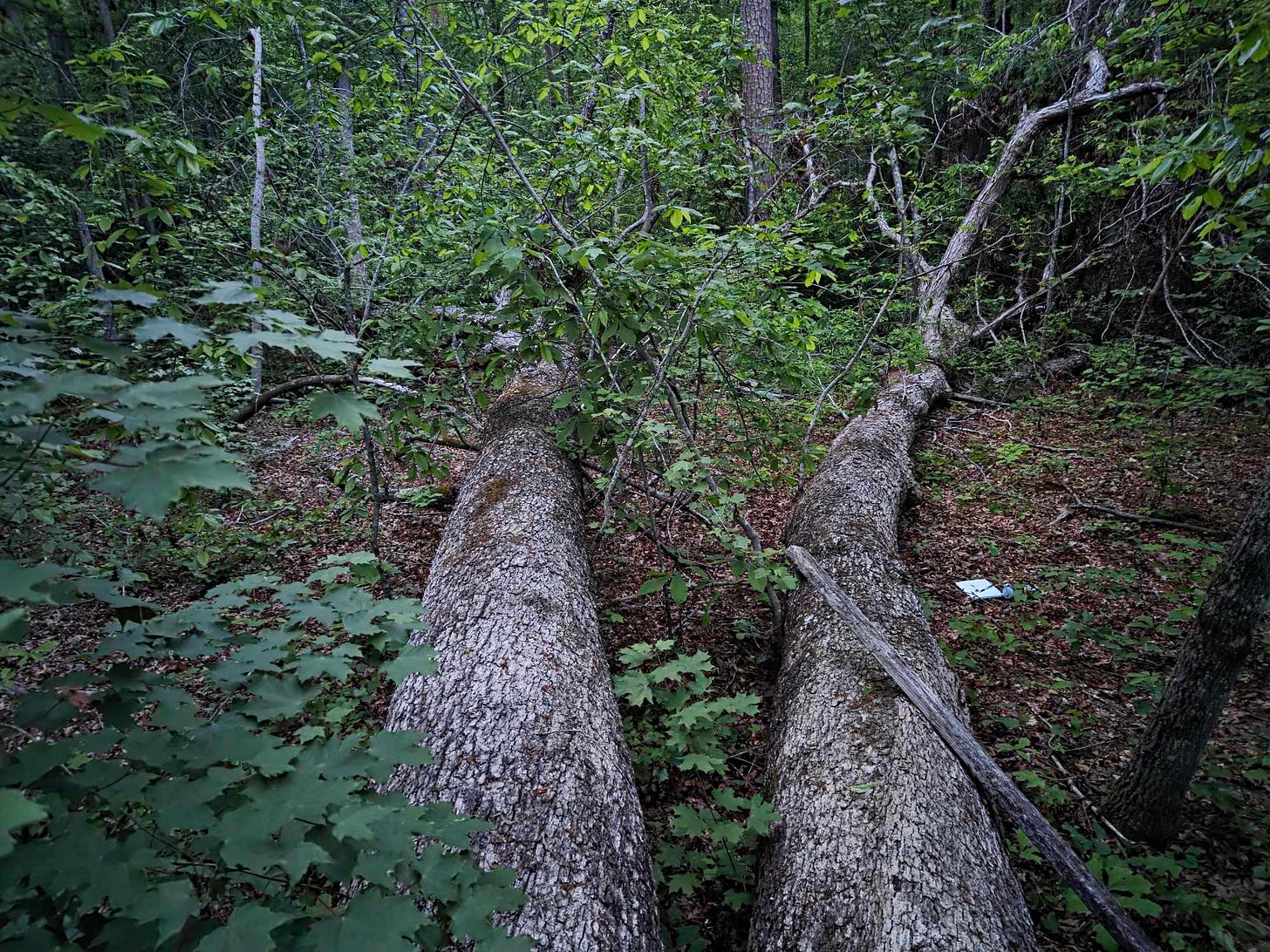
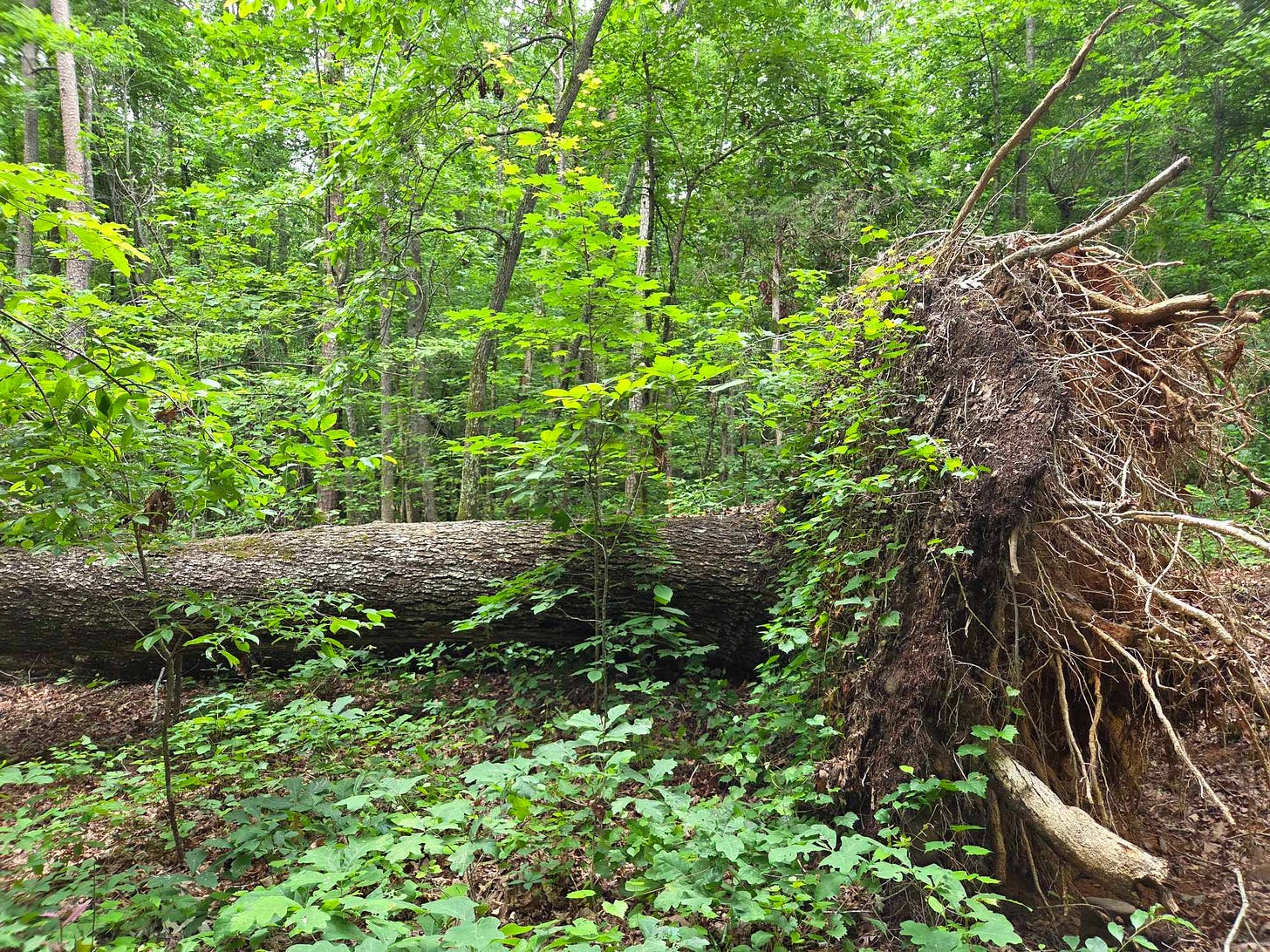
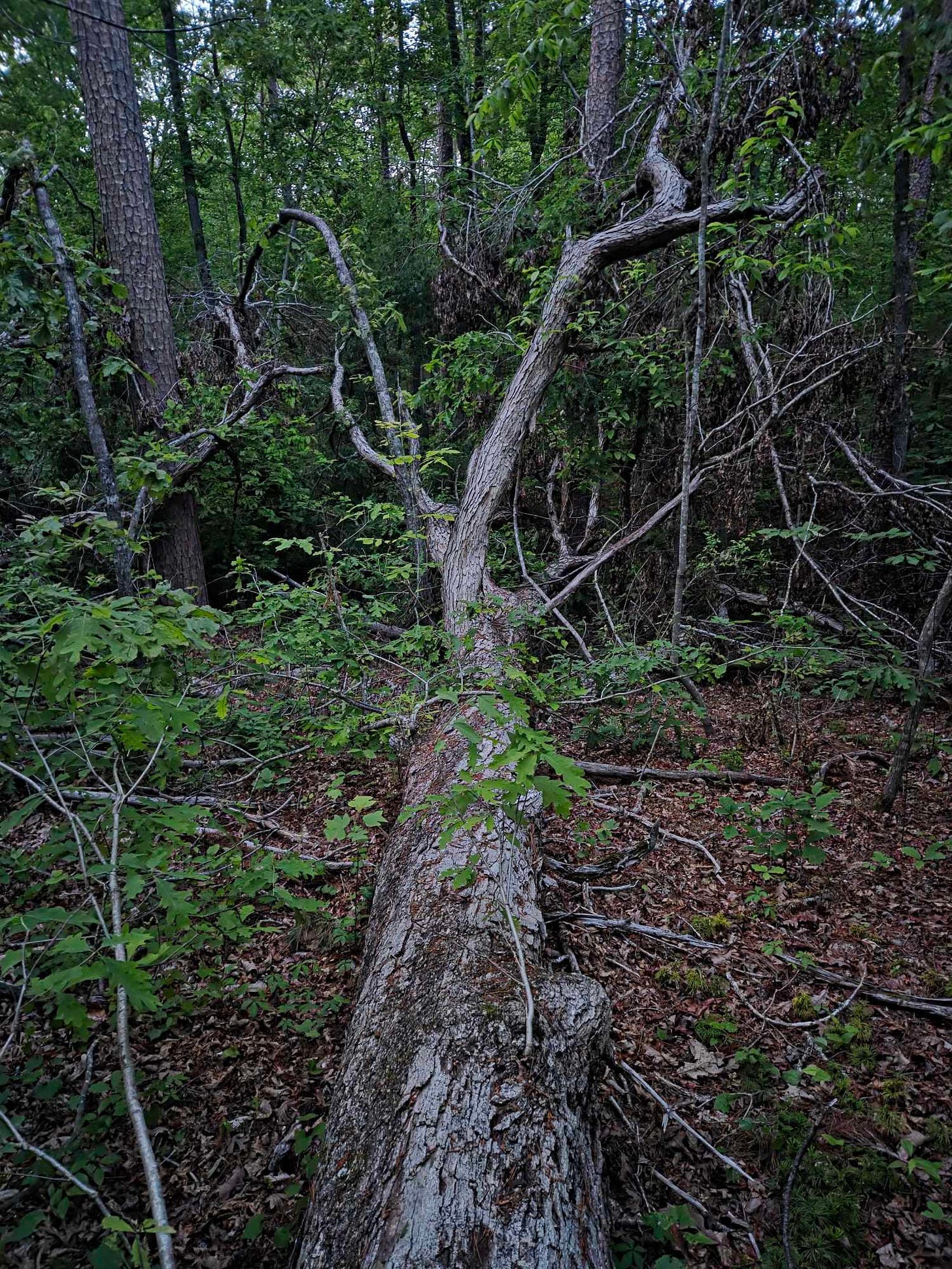


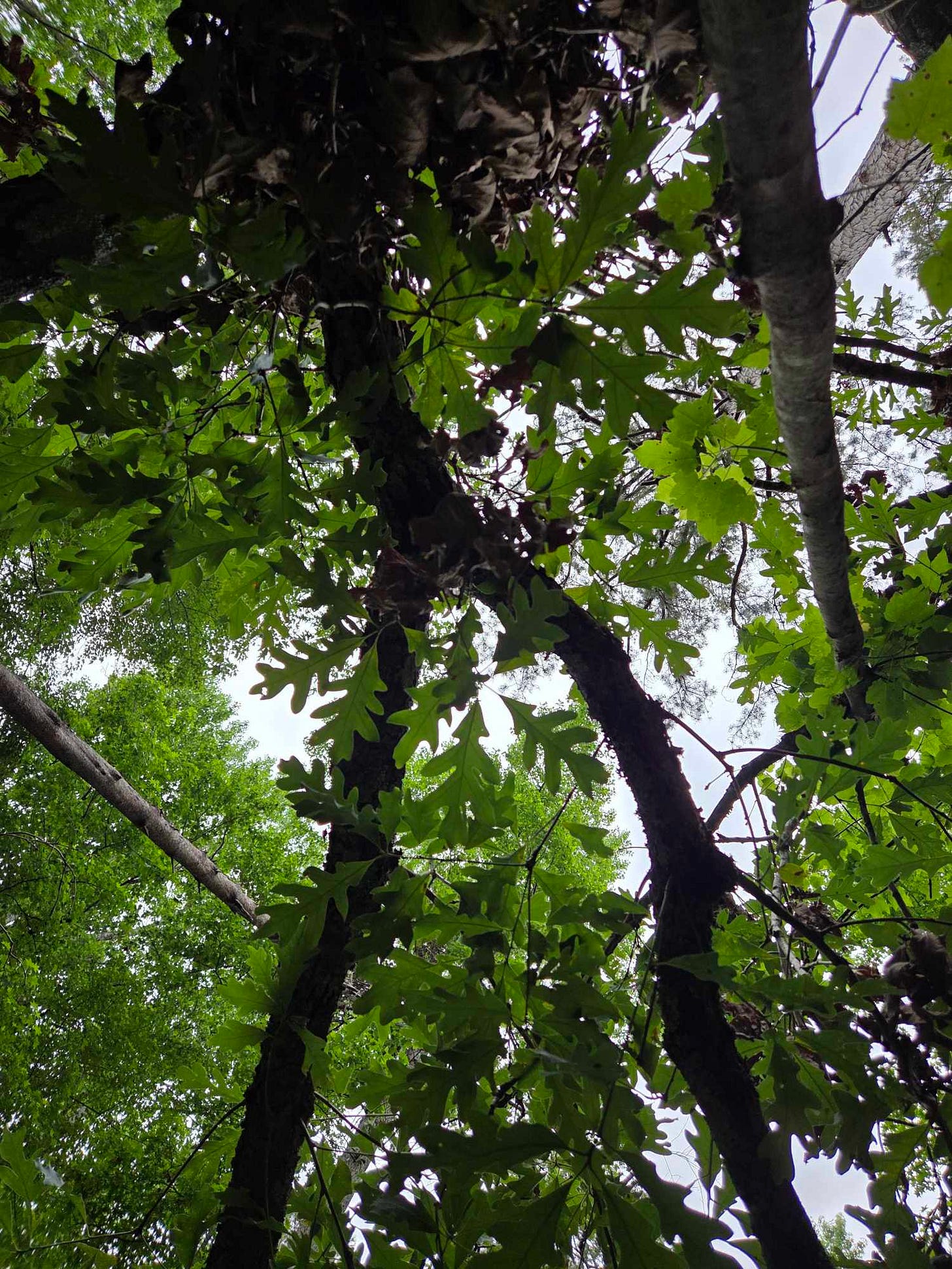
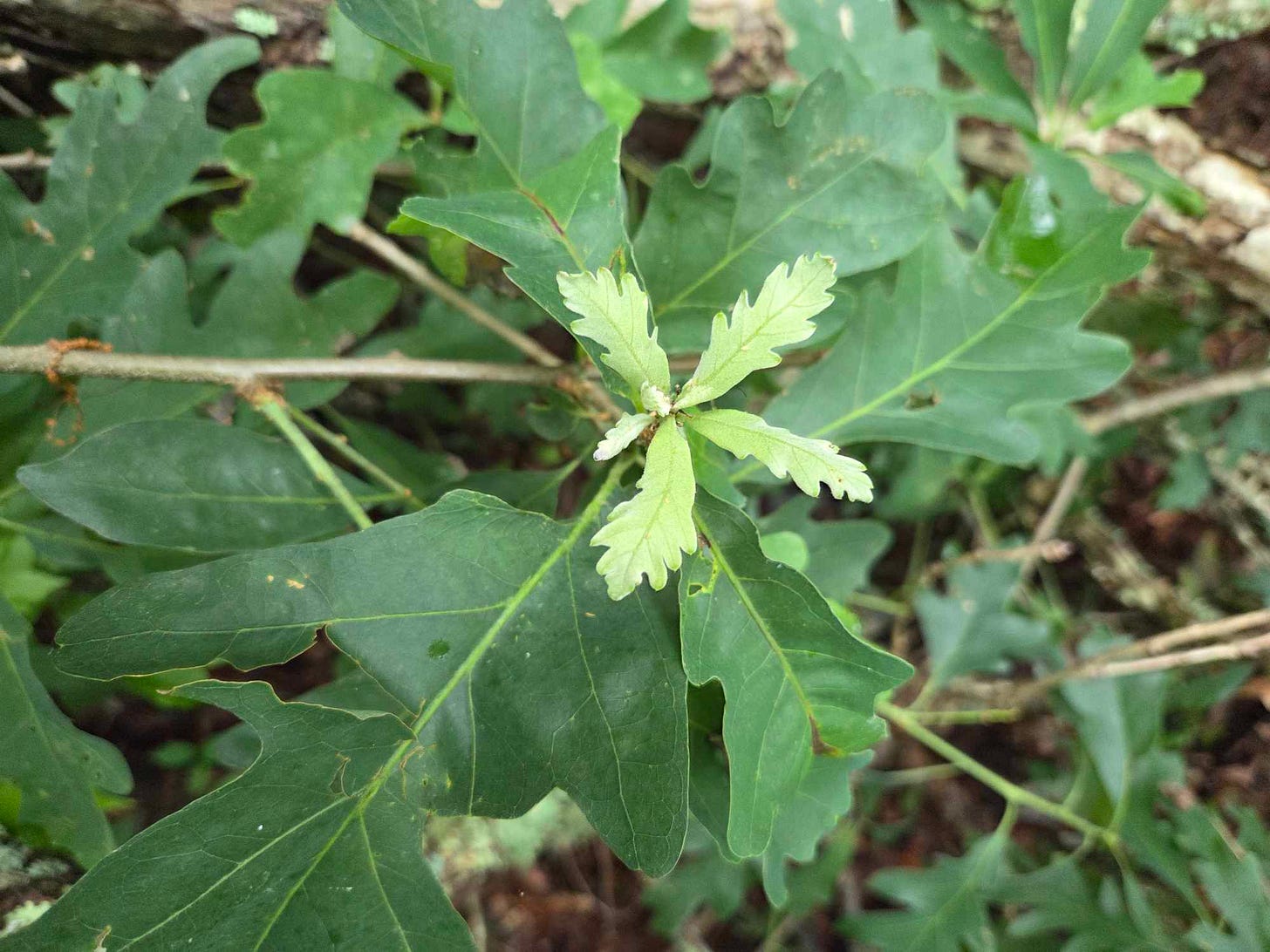

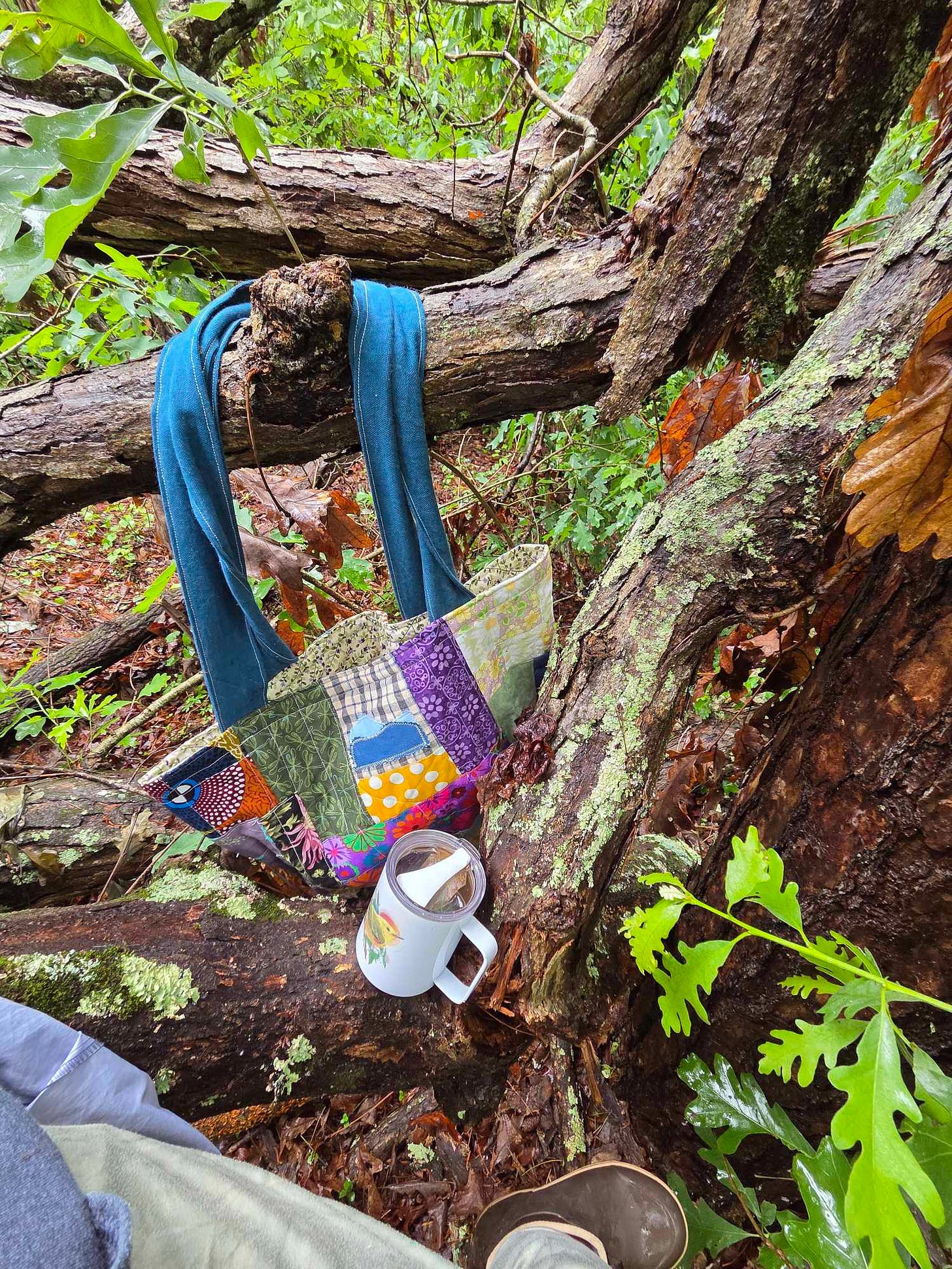
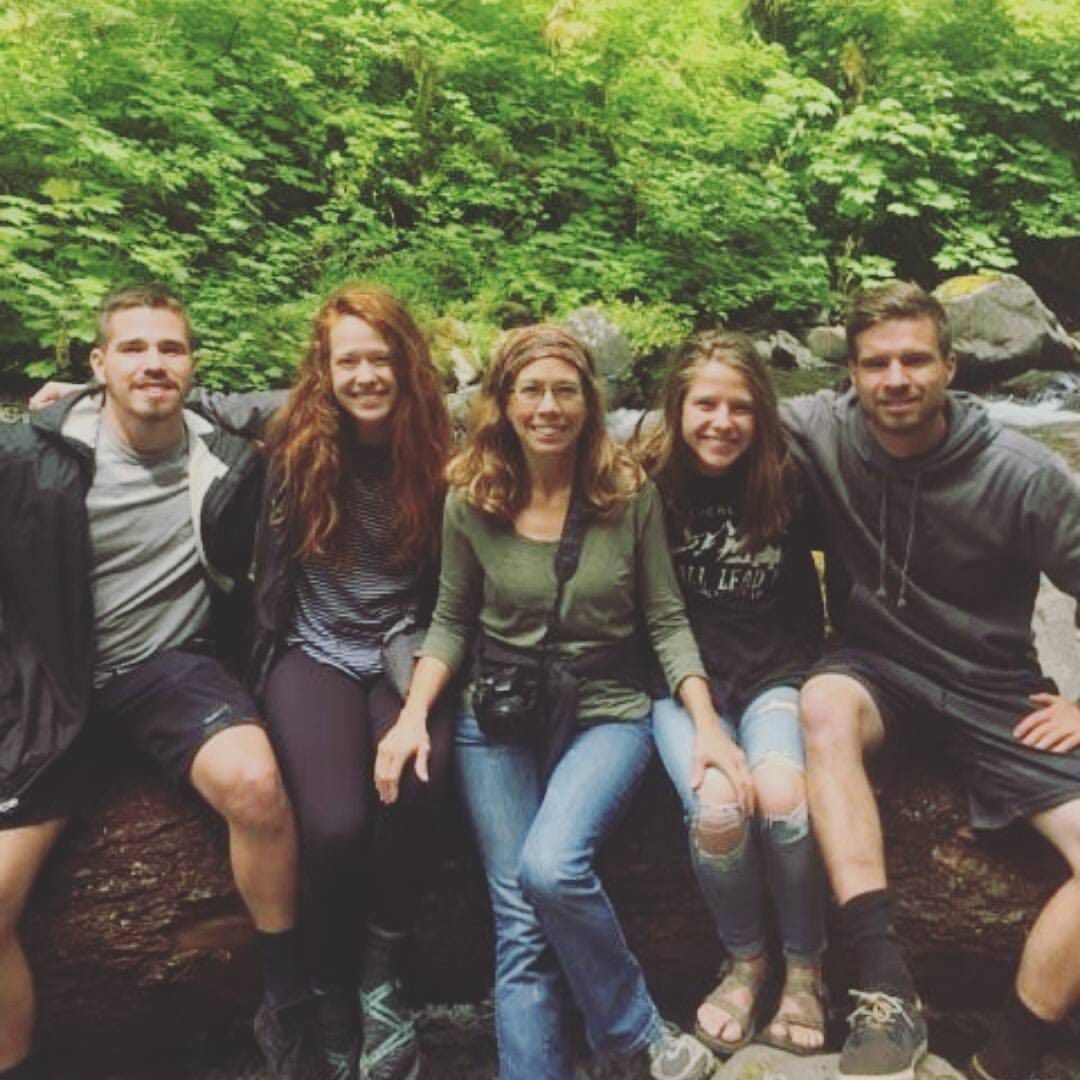
This is such a beautiful essay.
I have a friend who lost a young adult son. The place where she found the most solace was sitting beside a tree. Eventually, she became a forest therapist, leading people in “forest bathing,” meditation, and healing. Many of these people rarely if ever go into the woods. I’m surrounded by thousands of downed trees in the North Carolina mountains and never thought of making a seat or playground out of one as I hike past them. Thanks for this essay on so many levels. You’re a beautiful soul, Tricia, and I’m glad that beauty has allowed you to let in some light. Bless you.